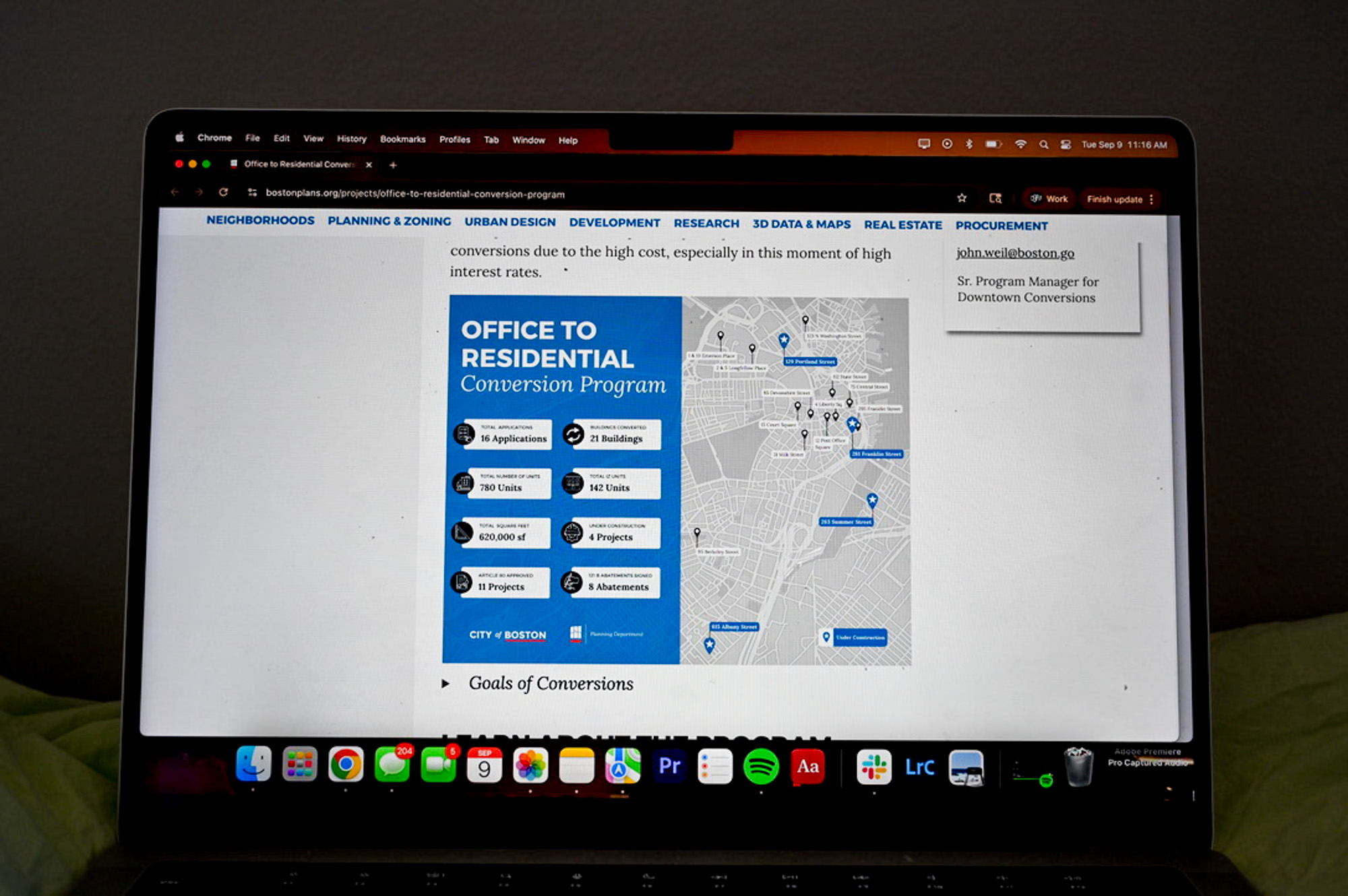The first new tenants have moved into apartments that were once vacant office spaces on 281 Franklin Street. These former corporate buildings are the first of many being converted into housing under Mayor Michelle Wu’s Downtown Conversion Program.

The program, conceptualized in 2022, aims to create new housing for Boston residents while combatting the city’s ongoing housing crisis.
“This program is aimed at supporting the city’s goal of making housing more affordable in one of the nation’s most expensive markets,” wrote Tony Baez, the director of operations for city councilor Sharon Durkan’s office, in an email to The Daily Free Press. “It also helps in revitalizing the city by adding foot traffic where vacant office space used to be.”
According to a report from the Boston Planning Department, approximately 20% of offices are vacant, with the number expected to rise to 30% in the coming years.
As of July 2025, the program has received 16 applications to create 780 units of housing and repurpose over 620,000 square feet of vacant office space. There are currently four projects under construction, creating roughly 150 units of housing, according to the BPD.
Action for Equity — a community-based and social justice organization — along with other housing justice organizations, helped pass legislation requiring 17% of new residential developments to be income-restricted units, Executive Director Marvin Martin said.
While the project has garnered support across Boston, there are concerns about its efficacy.
Martin said more administrative measures, such as rent control, need to be taken for this initiative to see tangible results.
While Wu strives to lower prices by building more housing, Martin said there should be “some regulatory action along with it.”
Kathy Brown, executive director of the Boston Tenant Coalition, a network of grassroots organizations promoting affordable housing, said she hopes the City can remove housing from the “speculative market and make it permanently affordable.”
“With inclusionary development, the affordable housing was just not affordable to median income families, especially Black, Latinos, [and] Asian [residents] and tenants in Boston,” Brown said. “We just want to make sure that it’s affordable.”


















































































































